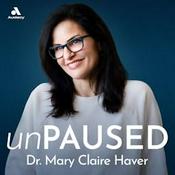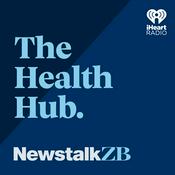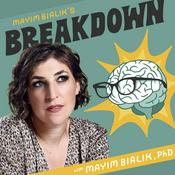303 episodes
Mitigating the Effects of Climate Change on Cancer Care With Robert A. Hiatt, MD, PhD
01/1/1 | 15 mins.While the threat of climate change may conjure images of sea level rise, extreme weather patterns, and drought, the full picture of how climate change will impact oncology practice and care is still emerging. We do know that climate change will impact cancer risk, increase exposure to carcinogens, impede access to care, and ultimately effect survival.
To discuss some of these impending changes and what oncologists and patients can do to prepare, Oncology Times interviewed Robert A. Hiatt, MD, PhD, Professor in the Department of Epidemiology and Biostatistics, and Associate Director of Population Sciences at the UCSF Helen Diller Family Comprehensive Cancer Center.- A large international cohort study has found that women testing positive for the BRCA mutation who chose to breastfeed their babies after treatment for their breast cancer faced no additional risk to their cancer outcomes.
OncTimesTalk correspondent Peter Goodwin talked with Eva Blondeaux, MD, Medical Oncologist in the Epidemiology Unit at the IRCCS Ospedale Policlinico San Martino, Genoa, Italy, and the author of the study, after her presentation of the new data at the ESMO 2024 Congress. Making Comprehensive Genomic Profiling More Accurate for Everyone: The Importance of Patient-Matched Tumor-Normal Sequencing
01/1/1 | 12 mins.In this podcast episode, host Ruchika Talwar, MD, is joined by Amin Mazloom, PhD, Senior Vice President of Bioinformatics, Biostatistics & Data Innovation, and Janine LoBello, DO, Senior Clinical Laboratory Medical Director at Exact Sciences to discuss patient-matched tumor-normal (PMTN) sequencing and why it matters for oncologists. Drs. Mazloom and LoBello discuss PMTN sequencing as a gold standard method for calculating tumor mutational burden and personalized therapy selection and share their thoughts on the future of cancer testing.Early Switch to Immunotherapy Recommended After BRAFV600 Mutation Targeted Therapy for Advanced Melanoma
01/1/1 | 7 mins.Findings from a study of patients receiving targeted therapy for their BRAFV600 mutation-positive advanced melanoma, suggest that switching early to immune checkpoint inhibition appeared to bring better rates of overall survival than saving immunotherapy for use as salvage treatment later on.
The ESMO 2024 Annual Congress heard from the randomized Phase II ImmunoCobiVem trial that a switch to immunotherapy after only 3 months treatment with drugs targeted to the mutation gave equivalent or better survival than continuing with targeted therapy.
More Health & Wellness podcasts
Trending Health & Wellness podcasts
About OncTimes Talk
OncTimes Talk features a variety of podcast series ranging from breaking news and oncology conference coverage to story round-ups and in-depth interviews with current experts and leaders in oncology.
Podcast websiteListen to OncTimes Talk, Feel Better, Live More with Dr Rangan Chatterjee and many other podcasts from around the world with the radio.net app

Get the free radio.net app
- Stations and podcasts to bookmark
- Stream via Wi-Fi or Bluetooth
- Supports Carplay & Android Auto
- Many other app features
Get the free radio.net app
- Stations and podcasts to bookmark
- Stream via Wi-Fi or Bluetooth
- Supports Carplay & Android Auto
- Many other app features


OncTimes Talk
Scan code,
download the app,
start listening.
download the app,
start listening.





































